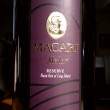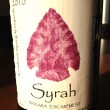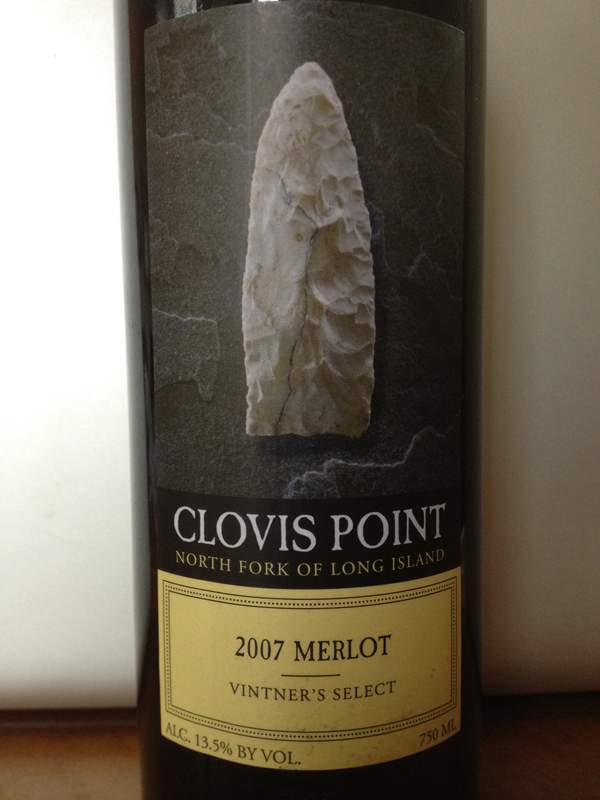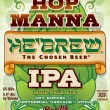Will a New Interpretation of an Old Regulation Hurt Small Cheesemakers?
Posted
January 12, 2011 by Aaron Estes in
Regions
By Aaron Estes, Cheese Editor
One of my favorite things to do on a Saturday morning here in New York City is to head to Union Square to explore the Greenmarket where farmers and vendors from across the state converge on this square year-round every Monday, Wednesday, Friday and Saturday.
Farmers, craftsman and cheesemakers depend on farmer


















Love the cheese report, a great addition to NYCR. Let me offer a few clarifications on this article. This is not a new interpretation of a regulation, but possibly new enforcement of a regulation at the Union Square market. This regulation has been enforced at other farmer’s markets around the state including Ithaca for many years.
This regulation not only pertains to cheese producers, but to fruit and veg. sellers too. I am not allowed to cut on site the heirloom apple and melon varieties that I sell at the Ithaca market. Many customers would like a taste of some of these unique varieties before purchasing, however I am forced to explain the ag. and market laws. I have decided not to cut the fruit at home (notice that ag. and market has no real rules for this), spray with lemon juice and package in a container as this tends not to be a good representative of the taste. Instead I sell in smaller volumes so that customers can try varieties without breaking the bank on an unknown variety. This has worked for us and almost all customers understand that my hands are tied (although another heirloom apple grower at the market does perform the above ritual foe their tasting apples).
A great cheese producer that I love at the Ithaca market is Northland Sheep Dairy. They prewrap the cheese in various weights, have precut samples and continue to have a loyal folling that grows every year. They have not suffered due to the laws as far as I can tell.
“If a creamery has passed multiple inspections, and the cheese maker brings a wheel of his or her cheese to a farmer
Thanks very much for the comment John! I appreciate the clarification on the new enforcement as opposed to the new regulation.
I am aware that the regulation is referring specifically to the sanitation at the market; however, the cheesemakers that I spoke with do make a point in that it reflects upon their practices in general.
Cleanliness and sanitation are ingrained into their business practice which includes time at the market. The point I was trying to make is that this almost seems superfluous given the monthly inspections. Of course they (being the cheesemaker) are going to do everything to ensure that everything is as clean as possible when transporting and cutting cheese at the market. The exact same could be said for you cutting into apples. It is what they do every day.
As far as this not having an impact on small producers, I think it is too early to tell as this was just put into effect this past Saturday. I completely agree with you as far as word of mouth and building trust with repeat customers. What about the passer by who is on the fence and might be open to trying something new? I think it is with this crowd that it might have an adverse affect. Time will tell.
I would disagree with with the statement that the cheesemakers “…do everything to ensure that everything is as clean as possible…”. Yes, most producers do follow strict sanitation procedures, but in the above mentioned producer in your article, she did not do everything possible. She was in the milkhouse returned to the dairy w/ soiled clothes and continued to make cheese. She does not refute this point, she only offers to change her practices. Change is to late if someone gets sick. I know many small dairy farmers and cheese makers who are horrified that she did this as it gives all the small producers a bad name.
Another concern is that even if the producers have the best procedures in place and has amazing training for the employees, it only takes one worker to take a short cut for bad things to happen(in the barn, cheese facility or at the market).
As far as trying something new thats why I mentioned small sample sizes for sale, most people are willing after talking to the producer to fork over a little money to try something new. In my experience the rare person who will not try something without a sample are not worth sweating over. I will reiterate that Northland has no problem selling out their cheese every week while following the ag. and market regulations. Think of it this way for those few nonbuyers, the savings on not offering samples offsets their lack of purchases for the bottom line of the cheesemakers. Small producers of any products don’t need every person that walks by to purchase something , we need loyal patrons.
Keep up the good work. When will you highlight some Fingerlakes cheese producers?
Ok, that is a fair point John regarding procedures in place and the practice in following them. Mistakes and accidents do happen and it only takes one of them to create a problem.
I think that is what is so interesting about the Sally Jackson situation. She has been an icon in the artisanal cheese world for years.
I actually need to make another trip up to the Finger Lakes. I have met and corresponded several times with Nancy at Finger Lakes Farmstead Cheese Co. Her Schuyler is sold at Lucy’s Whey down here in Chelsea Market. I am also a big fan of Lively Run. I have plans to write a story on the Finger Lakes Cheese Trail at some point soon.
There’s been a similar crackdown on samples at some farmers markets in Northern Virginia, for produce vendors as well as cheese. Samples have to be precut and served in lidded containers. (Increasing the spread of germs now since everyone handles the same lid…) Has there been a rash of illness from farmers market samples that we haven’t heard of? It’s bizarre.
I am one of the farmers/cheese makers/Greenmarket vendors who is likely to be affected by the enforcement of the 20-C food license. Ironically, the department of food safety at NY Agriculture and Markets is enforcing this among cheese makers BUT NOT other food vendors. In doing so they are ignoring two facts of food safety (1) the number of incidents of sickness from pathogens is much higher in greens & vegetables that are eaten raw than in cheese; and (2) cheese makers (I can only speak for those in NY) are inspected to a degree that NO OTHER food producer is with the exception of possibly USDA butchers. I was pleased to read Aaron’s posts as he has a very good understanding of the degree to which our plants, our equipment, our milk, our water supply, and our products are inspected in NYS. Random samples of milk & cheese are taken each month from our inventory and tested for pathogens. It is logical and rational to surmise that a NYS cheese maker who has a record of producing products that are clean and safe is capable of applying the same safe handling procedures to their products EVEN IF they are at a Farmer’s Market. Just the proximity of a 3-bay sink does not change a sloppy producer into a clean vendor or mean that there are no other mechanisms and processes that can be used to ensure sanitary cutting of cheese at an outdoor market. I personally am always more worried when I see people not trained in safe food handling thoughtlessly pick up greens with their bare hands or put out samples which customers can freely reach into with their hands or use utensils to handle food after those utensils have fallen on the ground.
The argument that there is no need to cut and sample cheese at farmer’s markets does not address the issue of whether those vendors who would like to can do so in a safe and hygienic manner without the 20-C requirement for a permanent structure with a 3-bay sink and hot & cold running water. The issue is both about food and economic freedom within the existing system. My farm, my cheese making room, my products and my processes are under an incredible amount of scrutiny by Ag & Markets in NYS. Why then, if I pass such scrutiny do I not get the benefit of the doubt in the actual sale of these products? There is just no evidence indicating that at the point of sale my product is more likely to become adulterated when I have managed to produce a safe & hygienic product at each other step along the way. And, more importantly, why I would go to the trouble and expense of running a farm, working long hours to produce an artisanal product that can meet the rigorous regulations of NYS, and then be careless and blase’ about how that product is cut & wrapped is ridiculous. For those who who think that the physical structure and the proximity of a 3-bay sink is the ultimate safeguard for the safety of their food, I suggest that they eat all their meals at fast food chains where both of these criteria are being met.
Thanks so much for your comment Karen. You make a clear point in highlighting that a 20-c license in no way guarantees any amount of safety. As you said, the idea that a cheesemaker would follow such rigorous and stringent protocols put in place by NYS only to disregard them when interacting with the public in the marketplace is not only ridiculous, it’s downright deplorable.
You also bring up an interesting point that these same protocols are not applied to the other vendors. I have seen a number of grass-fed beef or pastured lamb vendors there who offer cooked samples on toothpicks or even cups of broth to every person that walks by.
If it is only the cheesemakers that have been forced to abide by this new enforcement, then there is clearly something afoot…